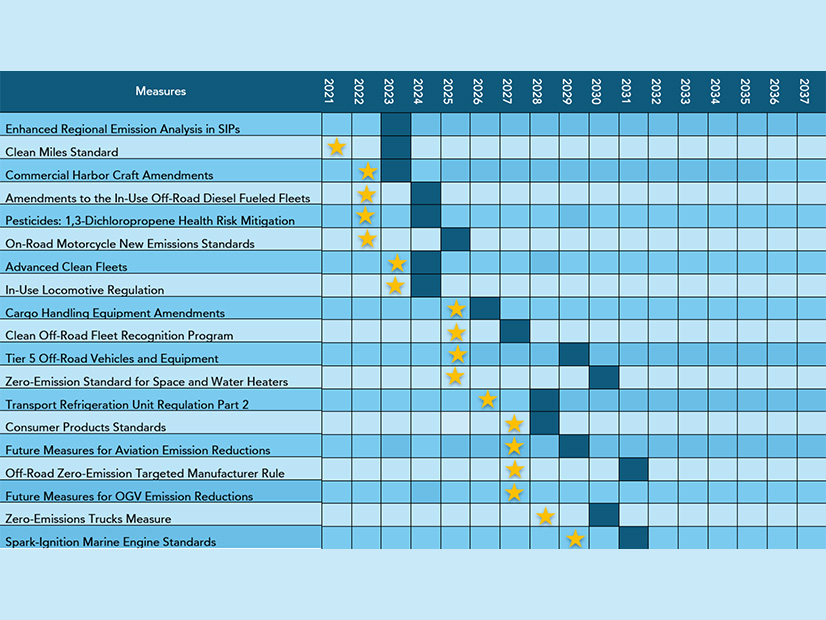
California regulators last week approved a plan that sets a 2025 target date for enacting a ban on sales of new natural gas-powered space and water heaters.
If the California Air Resources Board (CARB) approves the ban on schedule, it would take effect in 2030. Sales of new space and water heaters in California would be restricted through a zero-emission standard for the appliances.
The measure wouldn’t require replacement of gas heaters in existing buildings. But all new space and water heaters sold in California, either for new construction or to replace appliances in existing buildings, would need to meet the zero-emission standard.
“It is expected that this regulation would rely heavily on heat pump technologies currently being sold to electrify new and existing homes,” CARB said.
The potential ban on gas heaters is part of the 2022 State Implementation Plan, which CARB’s board voted to approve on Thursday. CARB will submit the plan to the U.S. EPA to show how California plans to meet the federal air quality standard for ozone.
In California, 19 areas are designated as being in nonattainment for the ozone standard, according to CARB. That includes the San Joaquin Valley and the South Coast Air Basin — the only two areas in the nation that are considered to be in extreme nonattainment.
The SIP contains an array of ozone-reduction strategies. CARB has already started rulemaking for some of the measures, such as the Advanced Clean Fleets regulation, which aims to achieve zero-emission truck and bus fleets in the state by 2045, where feasible. The regulation is expected to go to the CARB board for possible adoption next year, with implementation beginning in 2024.
A few of the other proposed measures in the SIP are an in-use locomotive regulation, new emission standards for motorcycles, and updated commercial harbor craft rules that the board approved in March and that will be phased in starting next year.
The measures are expected to improve air quality while also reducing greenhouse gases, helping California meet its climate goals.
The SIP is a commitment from CARB to pursue each measure in the strategy. For measures that involve a regulation, CARB is committing to bring a proposed rule to its board in the stated timeframe or explain why a rule wouldn’t achieve the desired emission reductions.
Regarding a zero-emissions standard for space and water heaters, CARB would work with other agencies, including the U.S. Department of Energy, California Energy Commission and the state Building Standards Commission. Stakeholder feedback would be gathered, and the proposal would be “subject to a full public process,” CARB said.
In addition, the agency said it “would work carefully with communities to consider any housing cost or affordability impacts, recognizing that reducing emissions from space and water heaters can generate health benefits and cost-savings with properly designed standards.”
According to CARB, almost 90% of nitrogen oxides emitted from buildings are from space and water heating. The remainder comes from cooking, clothes drying and other uses. Nitrogen oxides react with other chemicals in the air to form ozone.
CARB said that as it crafts zero-emission standards for space and water heating, the measure could potentially be expanded to include other end uses.



